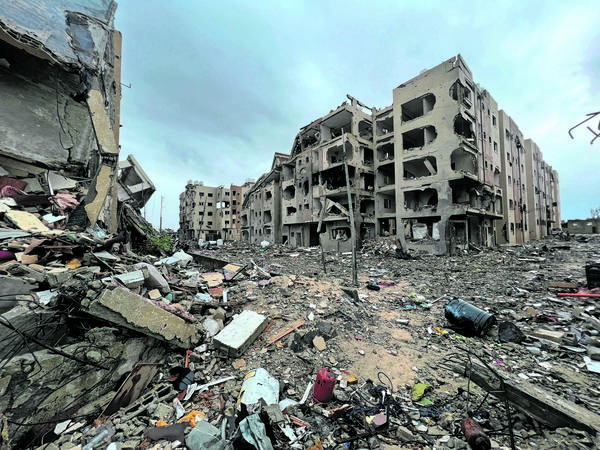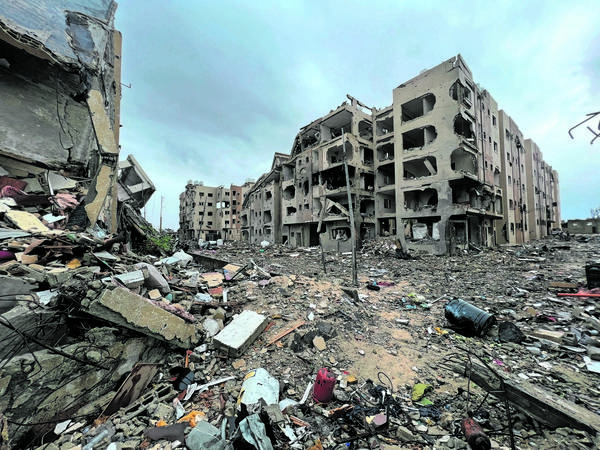

“‘How can we dance
When our earth is turning
How do we sleep
While our beds are burning.”
Beds are Burning Midnight Oil (1987)
“In a time of deceit, telling the truth is a revolutionary act!” These profound words by political theorist, Antonio Gramsci, from 1919, are particularly relevant in a world where so many “leaders” are making decisions blinded by ideology, prejudice and narrow self-interests, and thereby putting us all at risk.
Isn’t it time that we pause, reflect, show empathy, challenge and be more authentic in how we reach our decisions before we implement them? Failing to do so distorts our perspectives and fuels many of the crises facing humanity.
Flawed perspectives are problematic. Having different views potentially promotes conflict and the resultant anger and aggression obscure the ability to reason, fosters hate and polarises people.
Yet, ironically, conflict is an integral part of life. Our diverse humanity presents differences in thinking, ways of being and ways of doing. But what is important is how we deal with these. Diversity provides us with unique opportunities to develop empathy and tolerance and to build consensus through discussion.
Unfortunately, embedded thinking and obstructive egos create huge obstacles. A case in point is the many conflicts raging around the world which could have been resolved if leaders were willing to enter constructive dialogue.
Wars, in particular, reveal our “blindspots” and our diabolical nature. For thousands of years, it has laid waste to life — human, fauna and flora — wreaking devastation on infrastructure, destroying social systems and upending economies. The consequences of these were suffered across many generations prompting author John Steinbeck to write, “All war is a symptom of man’s failure as a thinking animal.”
The many conflicts around the world and the huge investment in military industries show that humans have still not evolved from their destructive habits. It therefore raises the following questions: “Can we not see the consequences of our destruction now and into the future?”, “Do we not realise that when we wage war against others, we really wage war against ourselves because the world becomes an unsafe place?”
Despite the use of precision bombs and smart munitions, the outcomes are the same: destruction of life and property. If we don’t realise this, then perhaps we need to spend less money on artificial intelligence and invest more in human intelligence!
The brutality being inflicted in Gaza has not been witnessed in recent history. And the sad reality is that after the devastation and experiences from two world wars during the past 100 years or so, it seems we have learnt nothing. Many humans are still locked into toxic masculinity and patriarchal ways of thinking that subscribe to “might is right”. This also fans domestic abuse, gender-based violence and destruction of the natural environment. Our narrow egotistic and financially-driven pursuits are preventing us from seeing the consequences of our actions, which merely confirms Steinbeck’s view.
Despite our geographical distance from the active war zones, we in South Africa are not immune to its effects. Social media has brought wars into our homes. Further, the interconnectedness of the global economy makes it particularly vulnerable to wars which have caused major disruptions to supply chains. Already we feel the impact through the increase in the price of food and fuel.
Refugee migration is also putting massive strain on surrounding countries and on the global economy.
But there is another insidious downside from exposure to wars. When we participate in conflict and violence, whether actual or virtual (computer games), it glorifies violence and alienates us from humanity. We become increasingly disconnected from each other, less sympathetic to pain and suffering, and less empathetic to the feelings of others.
Therefore, whether it’s in Gaza, Ukraine, northern Mozambique or the conflict zones in South Africa, wars are but scaled-up versions of what happens in our own backyards: the gangsterism in our communities, the bullying that takes place on the school grounds and the destruction of natural habitats. Unless we transform our behaviour, improve our relationships with fellow humans and deal with the “micro wars”, we will never fully resolve the macro ones.
So, with the world teetering on the abyss of a widening conflict and more human lives being dismissed as “collateral damage”, are we as individuals completely helpless or can we make a difference?
This question is best answered by mathematician and meteorologist Edward Lorenz with his theory of the “butterfly effect”. In his meteorological work, Lorenz shows how small, seemingly trivial, acts in nature can set off a chain of events that result in massive outcomes. Extrapolate this to human behaviour and we can think of many globally successful icons who through a chance meeting with someone, or a seemingly insignificant decision they took, ended up achieving something great and able to influence the lives of millions.
To change the world, we need to become “the butterflies and flap our wings”. We need to fan away the illusion of separateness from fellow humans based on class, race and religious differences. It is within our individual power to ignite a new sense of purpose and empathy, to promote peace and sustainable life.
Rudi Kimmie (PhD) is a personal and organisational development consultant. He is an alumnus of UKZN and writes in his personal capacity.
The post The butterfly effect and coping with global conflict appeared first on The Mail & Guardian.
To achieve inner and outer peace we must become ‘butterflies and flap our wings’
The post The butterfly effect and coping with global conflict appeared first on The Mail & Guardian.




